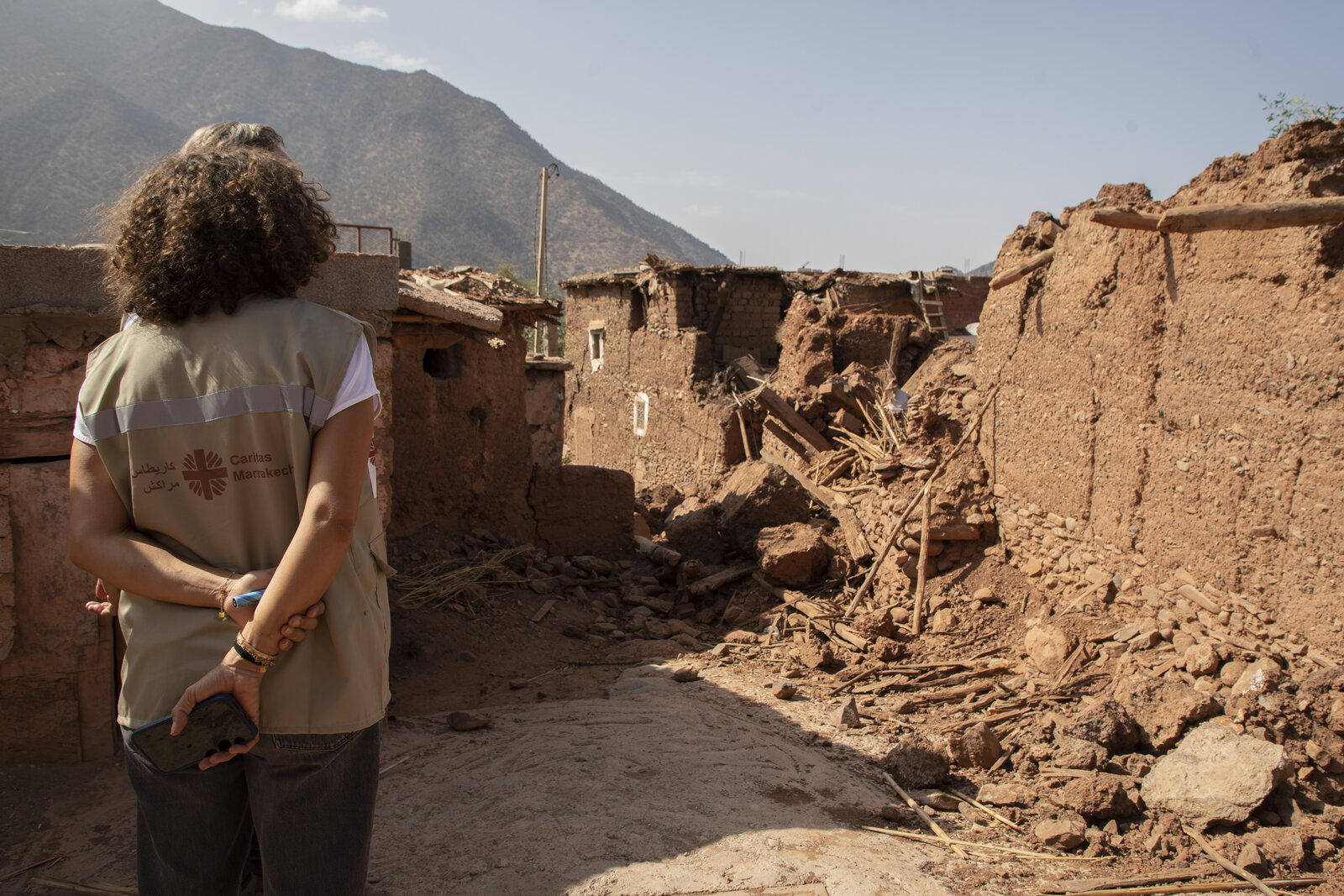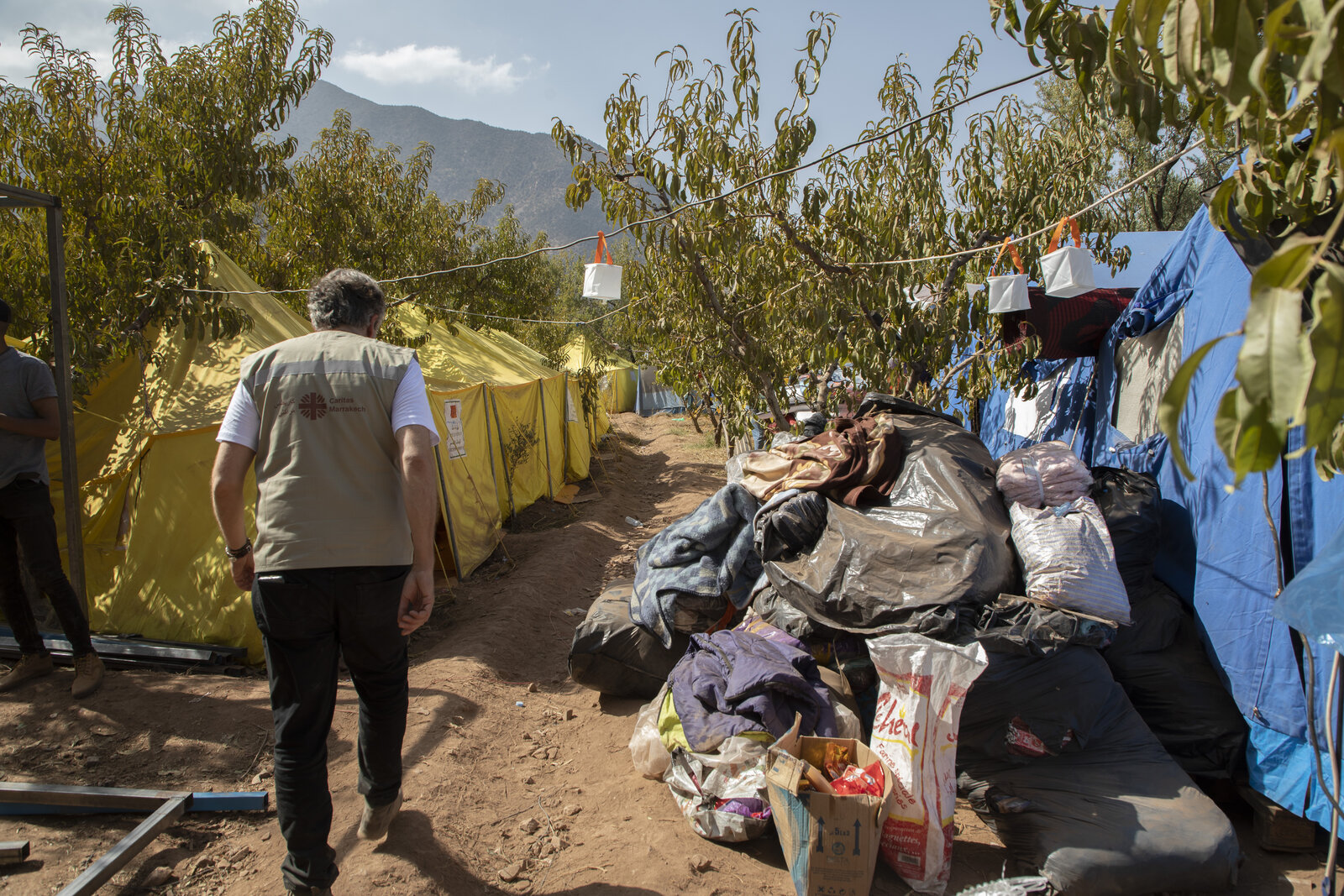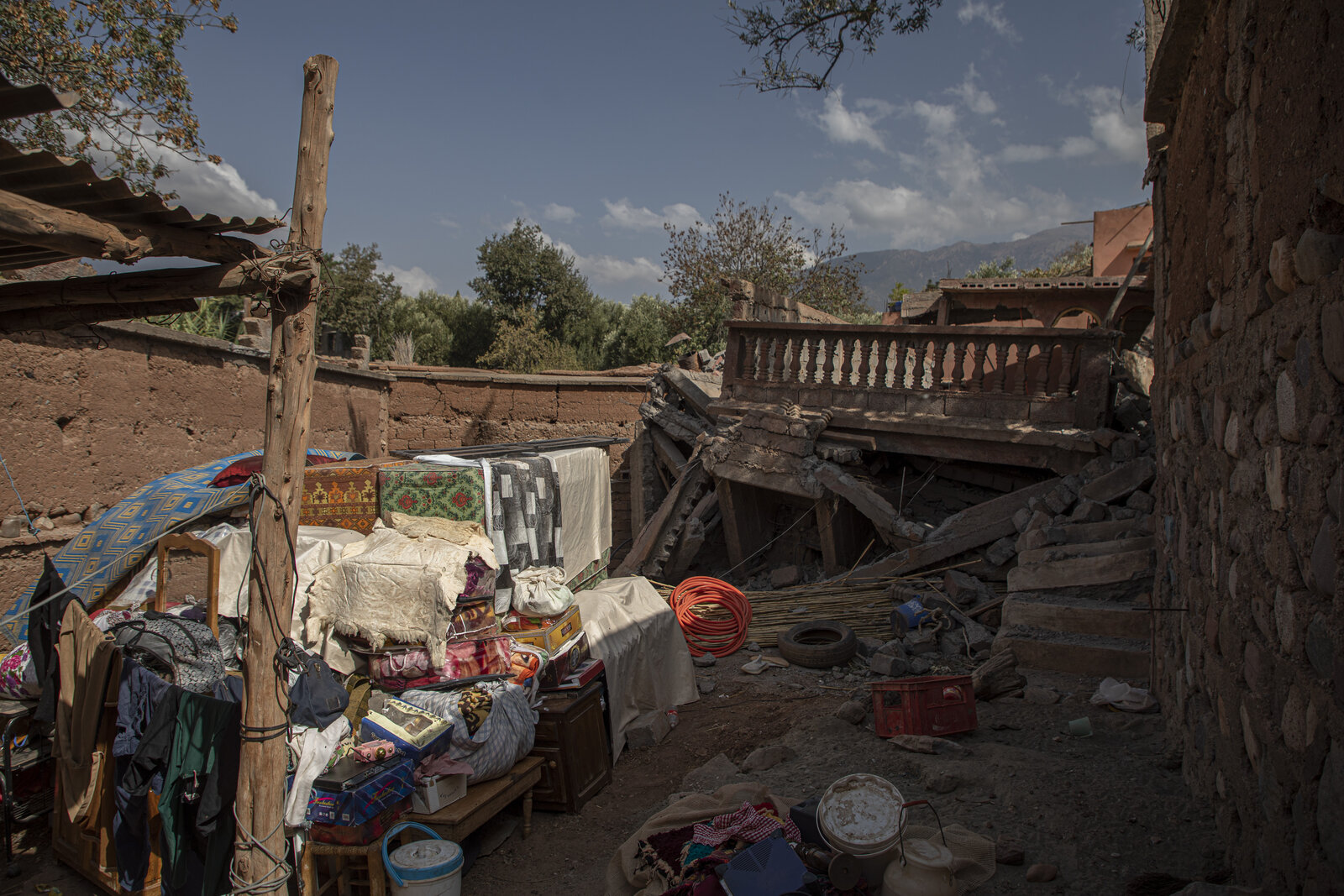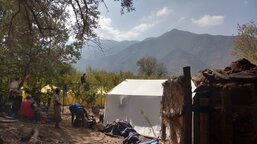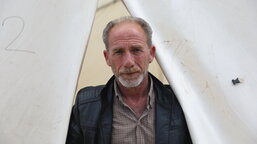On the night of 8-9th September, a tragic earthquake struck Morocco. Nearly 3,000 people lost their lives, and many Greater Atlas region villages were almost wholly destroyed. Caritas Czech Republic immediately announced an appeal and sent its representative, Regional Manager Kateřina Velíšková, to the site. What does the situation a week after the earthquake look like? How is Caritas helping on the ground, and what are the plans for further assistance in reconstructing the affected areas? This is what we talked about with Kateřina Velíšková.
Donate and help people affected by the earthquake
This week, you have been arranging aid for people affected by the catastrophic earthquake in Morocco. What is the situation in the country at the moment?
About 300,000 people have been affected by the earthquake, the hardest hit being the mountain villages of the Greater Atlas Mountains inhabited by the Berbers. While the situation in the tourist hotspot of Marrakech, for example, is relatively stable, and the effects of the tremors are not so obvious, the situation in the mountains is quite different. Most houses in many villages collapsed or were severely damaged, and many families lost most of their relatives. Survivors have lost not only their loved ones but often also all their possessions. They are staying in makeshift shelters and tents and dependent on humanitarian aid.
The mountainous areas are less accessible, and in the first days after the earthquake, it was difficult to reach many places due to landslides and debris. What is the situation now?
Unfortunately, the earthquake has blocked access to many of the affected areas. Getting aid, especially to remote areas, has been very difficult and slow. However, the situation is rapidly improving. I have to say that the local government has responded to the disaster quite well. The army, which is coordinating aid in the mountainous areas, has managed to make the vast majority of the main roads passable, and aid is getting to wherever it is needed. In many places, basic needs such as tents, food supplies, water and latrines to prevent the spread of infectious diseases have already been provided.
How is Caritas involved in providing aid?
Caritas Czech Republic immediately announced an appeal to help the affected people, and I flew to Morocco shortly after the earthquake to be directly involved in arranging aid. From Saturday morning onwards, intensive humanitarian aid organised by the local Caritas Morocco started, and we agreed to cooperate with them. The branch in Marrakech has become a coordination centre where people bring in the necessary aid such as clothes, blankets, food and hygiene products. Here, the aid is sorted, food and hygiene packages are prepared, other necessary materials are purchased, and then the aid is distributed to the affected mountain villages or the communities directly in Marrakech. Caritas is also carrying out an assessment of the specific needs of the affected population to ensure that the aid provided is effective and meaningful.
What do people in the affected areas need most at the moment?
These are basic needs such as safe shelter, blankets, drinking water, food, hygiene items, clothing, medicines, generators .... But also toys and other activities for children to keep them entertained and to take their minds off the disaster that has hit them, at least for a while. At the moment, the weather in Morocco is relatively hot, but soon, there will be a period of intense rainfall followed by winter, and most of the current tents are not prepared for this; many of them are not waterproof, for example. There are plans to build collective accommodation centres, but it can be assumed that many people will not want to leave their villages. Those who remain will need intensive assistance.
The affected area is quite large, and assistance coordination is undoubtedly tricky. At the same time, a number of actors are involved. How can we prevent chaos and ensure that the aid actually gets to where it is needed?
Excellent and effective coordination is absolutely essential. Without it, aid could accumulate in some areas and not reach others. In Morocco, the local army has successfully taken on the main coordination role. Even within Caritas itself, which has been authorised to provide aid in one of the mountain areas, there is an elaborate system for recording needs, the aid provided and its follow-up planning.
Donors have already contributed nearly two million Czech crowns to the collection to help the affected people in Morocco. How does Caritas Czech Republic plan to use the funds to provide further aid?
Thank you very much to everyone who decided to help. It is incredible what a wave of solidarity has risen in Morocco and other countries, including the Czech Republic. The funds from the collection are currently contributing to providing immediate humanitarian aid described above. But soon, we plan to focus on what could be a pressing problem in just a few weeks. And that is the fact that the existing tents and shelters are totally inadequate for the rains that are soon to come, and totally inadequate for the winter. There is a need to help the affected residents secure good quality waterproof and insulated tents and other equipment to survive the harsh mountain winter in relative comfort. But it is not just about accommodation for individual families. Schools and other public buildings have also been damaged by the earthquake, and there is a need to ensure that children have somewhere to continue their schooling as soon as possible. At the same time, many people have lost their livelihoods, which they can no longer rebuild on their own without help. So, we plan to use our extensive experience of rebuilding Iraq to help people in Morocco rebuild their livelihoods.
Thank you for the interview.


